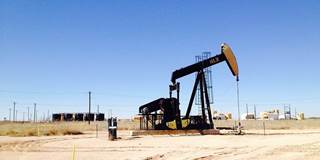The price of oil, often used as a sort of thermometer to measure the health of the world economy, is also a barometer, warning of approaching geopolitical storms. And the security challenges implied by falling oil prices are likely to be more significant than the economic risks.
PRINCETON – The price of oil is often regarded as a sort of thermometer to measure the health of the world economy. What is less often noted is that it can also serve as a barometer – warning of approaching geopolitical storms. Indeed, the dramatic plunge in the price of a barrel of crude – from nearly $150 in June 2008 to around $30 today – is likely to fuel continued upheaval far beyond the world’s energy and commodity markets, with particularly worrying implications for the European Union.
Sinking oil prices are clearly correlated with financial instability, but the lines of causation do not point in the direction most pundits seem to believe. On the contrary, when the price of oil rises, so do costs in most rich, industrialized economies; thus, a rising oil price acts as a brake on growth. Surges in the price of oil led to global recessions in 1973, 1979, 2000, and 2008.
The reverse is also true. An economic slowdown will likely produce a price drop, which can be a financial boon for governments and consumers alike. After the collapse of Lehman Brothers in 2008, oil prices plummeted in anticipation of economic stagnation, only to recover substantially as vigorous growth continued in emerging markets. Viewed in this light, the recent drop in oil prices is unsurprising, as it follows signs of weakness in every major emerging market (with the possible exception of India).

PRINCETON – The price of oil is often regarded as a sort of thermometer to measure the health of the world economy. What is less often noted is that it can also serve as a barometer – warning of approaching geopolitical storms. Indeed, the dramatic plunge in the price of a barrel of crude – from nearly $150 in June 2008 to around $30 today – is likely to fuel continued upheaval far beyond the world’s energy and commodity markets, with particularly worrying implications for the European Union.
Sinking oil prices are clearly correlated with financial instability, but the lines of causation do not point in the direction most pundits seem to believe. On the contrary, when the price of oil rises, so do costs in most rich, industrialized economies; thus, a rising oil price acts as a brake on growth. Surges in the price of oil led to global recessions in 1973, 1979, 2000, and 2008.
The reverse is also true. An economic slowdown will likely produce a price drop, which can be a financial boon for governments and consumers alike. After the collapse of Lehman Brothers in 2008, oil prices plummeted in anticipation of economic stagnation, only to recover substantially as vigorous growth continued in emerging markets. Viewed in this light, the recent drop in oil prices is unsurprising, as it follows signs of weakness in every major emerging market (with the possible exception of India).